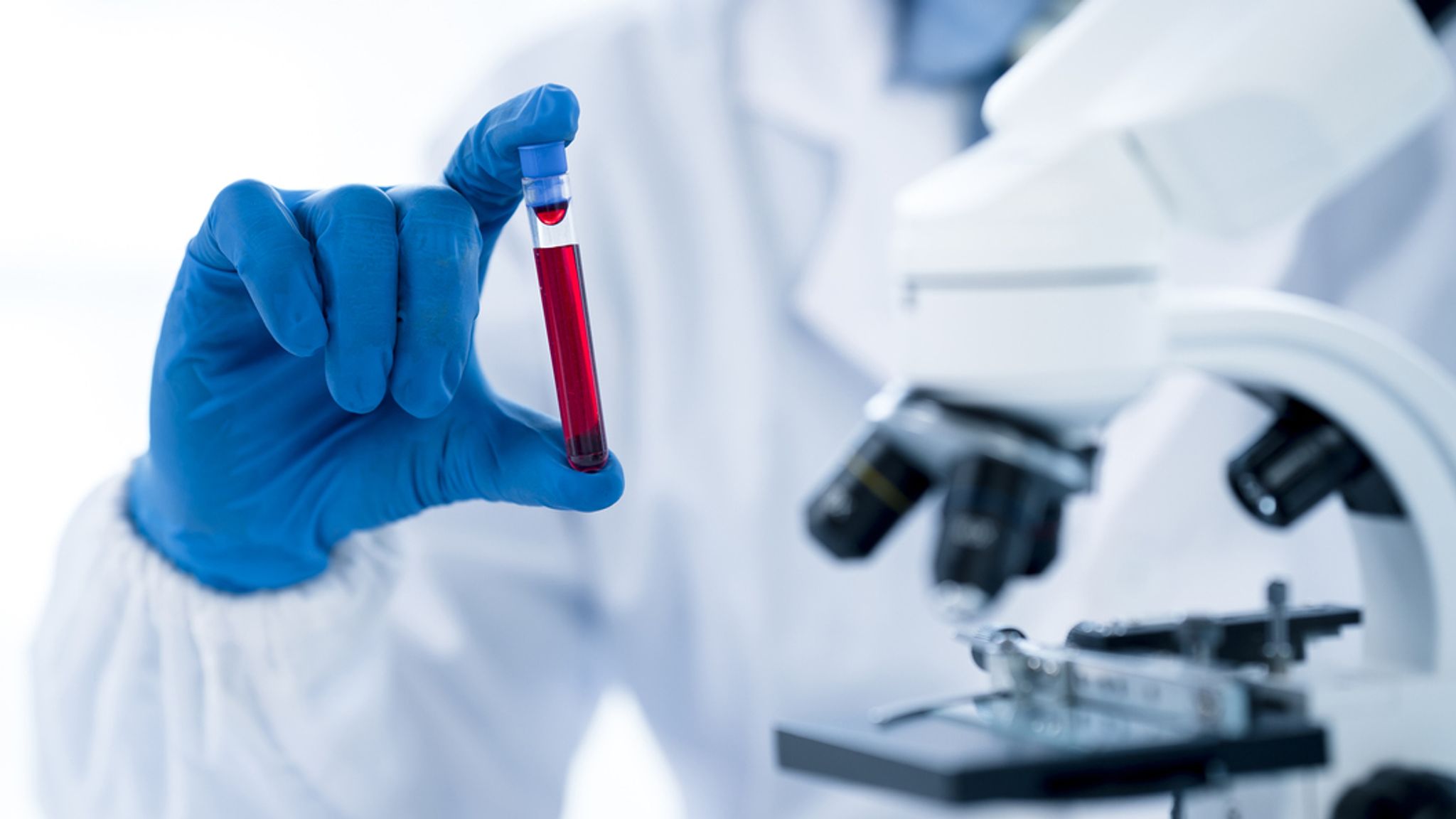The Comprehensive Guide to Fertility Blood Tests: What You Need to Know

Fertility blood tests are a cornerstone of reproductive health assessments, providing valuable insights into the hormonal factors that influence conception. For individuals or couples experiencing difficulties conceiving, these tests can uncover underlying issues and pave the way for effective treatment strategies.
This guide delves into the most common fertility blood tests for both men and women, explaining their purpose, significance, and how they contribute to understanding reproductive health.
What Are Fertility Blood Tests?
Fertility blood tests measure hormone levels and other markers that affect reproduction. These tests assess:
- Ovulation and ovarian reserve in women.
- Sperm production and hormonal balance in men.
- Underlying conditions that may impact fertility, such as thyroid dysfunction or genetic factors.
Fertility Blood Tests for Women
Women often undergo a range of blood tests to evaluate their hormonal balance, ovarian reserve, and overall reproductive health.
1. Follicle-Stimulating Hormone (FSH)
- Purpose: FSH regulates ovarian follicle development.
- When Tested: On day 2 or 3 of the menstrual cycle.
- What It Indicates:
- High FSH levels may indicate diminished ovarian reserve.
- Low levels could suggest hypothalamic or pituitary dysfunction.
2. Anti-Müllerian Hormone (AMH)
- Purpose: Measures ovarian reserve by assessing the number of follicles available.
- When Tested: Anytime during the menstrual cycle.
- What It Indicates:
- Low AMH levels suggest reduced egg quantity, often linked to aging or premature ovarian insufficiency.
3. Luteinising Hormone (LH)
- Purpose: Stimulates ovulation and corpus luteum formation.
- When Tested: Early in the cycle or during ovulation assessment.
- What It Indicates:
- High LH levels can signal polycystic ovary syndrome (PCOS).
- Low levels may point to pituitary dysfunction.
4. Progesterone
- Purpose: Confirms ovulation and supports implantation.
- When Tested: Around day 21 of the menstrual cycle for those with a 28-day cycle.
- What It Indicates:
- Low progesterone levels suggest anovulation or luteal phase defects.
5. Oestrogen (Estradiol)
- Purpose: Assesses ovarian function and follicle development.
- When Tested: Early in the menstrual cycle.
- What It Indicates:
- High levels may indicate ovarian cysts or PCOS.
- Low levels could signal reduced ovarian reserve.
6. Prolactin
- Purpose: High prolactin levels can suppress ovulation.
- When Tested: Usually in the morning, as levels can vary throughout the day.
- What It Indicates:
- Elevated levels may suggest prolactinoma or other pituitary issues.
7. Thyroid Hormones (TSH, T3, T4)
- Purpose: Thyroid function affects menstrual cycles and ovulation.
- When Tested: Anytime during the cycle.
- What It Indicates:
- Hypothyroidism or hyperthyroidism can disrupt fertility.
Fertility Blood Tests for Men
Blood tests for men primarily focus on hormonal balance and factors influencing sperm production.
1. Testosterone
- Purpose: The primary male hormone essential for sperm production and sexual function.
- When Tested: Anytime during the day.
- What It Indicates:
- Low testosterone can impair sperm production and libido.
- High levels may indicate anabolic steroid use or hormonal imbalances.
2. Follicle-Stimulating Hormone (FSH)
- Purpose: Stimulates sperm production in the testes.
- When Tested: Anytime during the day.
- What It Indicates:
- High FSH levels may suggest testicular failure.
- Low levels could indicate pituitary dysfunction.
3. Luteinising Hormone (LH)
- Purpose: Regulates testosterone production.
- When Tested: Alongside testosterone levels.
- What It Indicates:
- Imbalances may signal testicular or pituitary issues.
4. Prolactin
- Purpose: Excess prolactin can reduce testosterone levels and sperm production.
- When Tested: Morning testing is recommended.
- What It Indicates:
- High levels may suggest a pituitary tumour or other hormonal disruptions.
5. Thyroid Hormones (TSH, T3, T4)
- Purpose: Thyroid function affects overall hormonal balance and sperm production.
- When Tested: Anytime during the day.
- What It Indicates:
- Abnormal levels can impair fertility and libido.
Combined Fertility Blood Tests for Couples
Some tests are relevant for both men and women, especially when investigating shared factors influencing fertility.
1. Genetic Testing
- Purpose: Identifies chromosomal or genetic issues that may affect fertility.
- What It Indicates:
- Conditions like Klinefelter syndrome in men or Turner syndrome in women.
2. Sexually Transmitted Infections (STI) Testing
- Purpose: STIs like chlamydia and gonorrhoea can affect reproductive health.
- When Tested: As part of initial fertility assessments.
3. Vitamin D Levels
- Purpose: Adequate vitamin D is linked to improved fertility outcomes.
- What It Indicates:
- Deficiency may affect egg quality or sperm motility.
The Process of Fertility Blood Testing
Preparing for the Tests
- Discuss your medical history with your healthcare provider.
- Follow any specific instructions, such as fasting or timing the test with your menstrual cycle.
Understanding the Results
- Results are interpreted alongside other diagnostic tests, such as imaging studies or semen analysis.
- Your healthcare provider will guide you on the next steps based on the findings.
When to Consider Fertility Blood Tests
- Irregular menstrual cycles or absence of periods.
- Difficulty conceiving after a year of unprotected intercourse.
- A history of miscarriages.
- Concerns about hormonal imbalances or genetic conditions.
Taking Action Based on Fertility Blood Test Results
Fertility blood tests are the first step toward addressing reproductive challenges. Depending on the results, your healthcare provider may recommend:
- Lifestyle modifications to optimise hormonal balance.
- Medications to stimulate ovulation or improve sperm production.
- Advanced fertility treatments, such as in vitro fertilisation (IVF) or intracytoplasmic sperm injection (ICSI).
FAQs
What are the most common fertility blood tests for women?
FSH, AMH, LH, progesterone, and oestrogen are commonly tested to assess ovarian function and hormonal balance.
Can fertility blood tests be done at home?
Some tests, like ovulation predictor kits, can be done at home, but most require laboratory analysis.
How long does it take to get results from fertility blood tests?
Results typically take a few days to a week, depending on the specific test.
What do high FSH levels mean?
High FSH levels may indicate diminished ovarian reserve in women or testicular failure in men.
Can thyroid problems affect fertility?
Yes, thyroid dysfunction can disrupt menstrual cycles, ovulation, and sperm production.
When should couples consider genetic testing for fertility?
Genetic testing is recommended for recurrent miscarriages, known hereditary conditions, or unexplained infertility.

